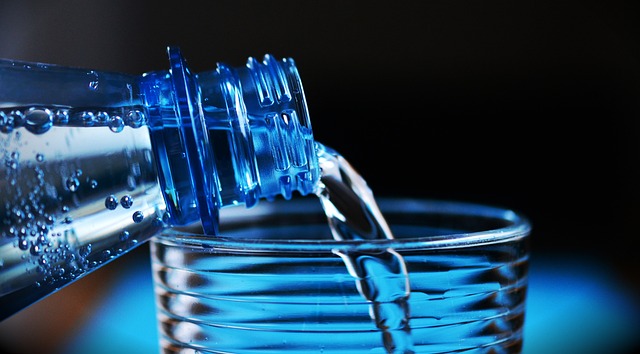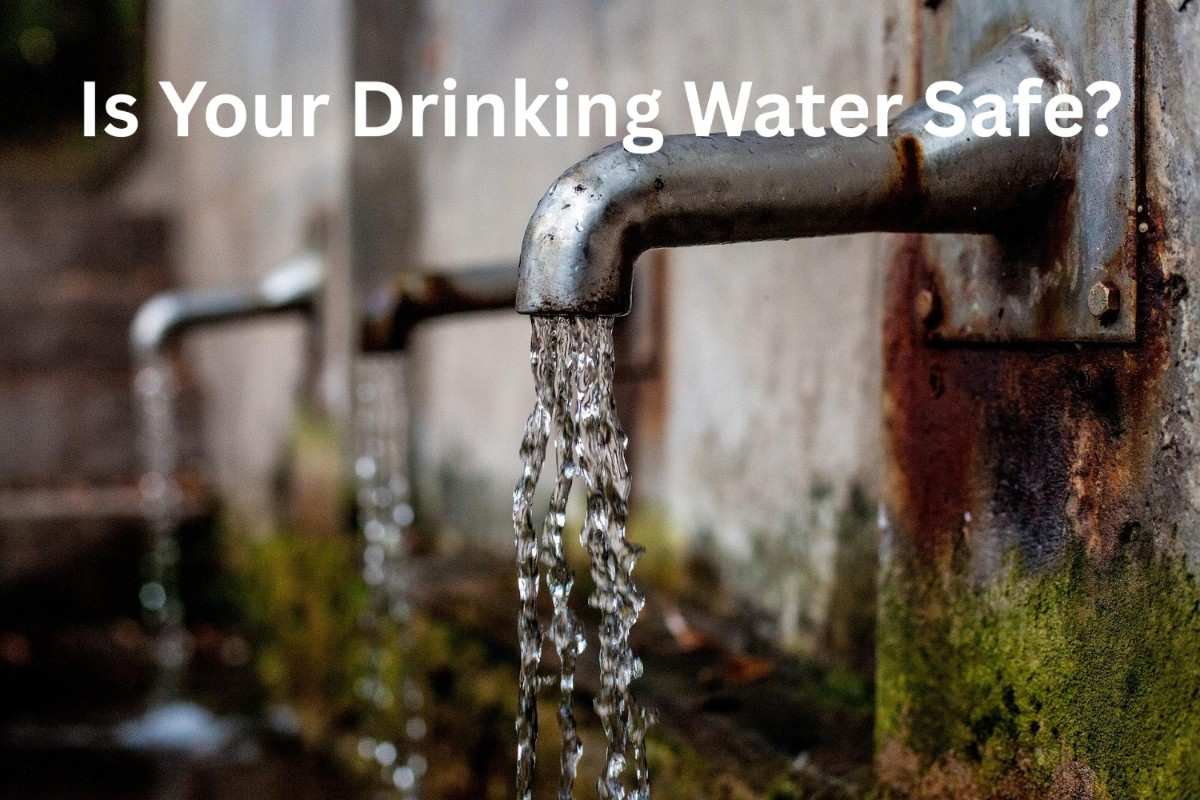Water is life, but what if the very thing meant to nourish you is silently harming you? Contaminated drinking water is a hidden danger lurking in many households, and most people don’t realize it until it’s too late. If you’ve been feeling unwell without a clear reason, your water could be the culprit.
Table of Contents
Here are five alarming signs that your drinking water might be slowly making you sick. If you notice any of these, take action immediately!
1. Constant Stomach Issues and Digestive Problems
Have you been suffering from frequent stomach pain, nausea, diarrhea, or bloating? Your drinking water might be to blame.
Why Is This Happening?
Contaminated water can contain harmful bacteria like E. coli, Giardia, and Salmonella. These microorganisms attack your digestive system, leading to persistent stomach issues.
Warning Signs to Look For:
- Recurring diarrhea or vomiting
- Abdominal cramps that won’t go away
- Feeling nauseous after drinking water
- Unexplained weight loss
What You Should Do:
- Stop drinking tap water immediately and switch to bottled or filtered water.
- Bring your water to a boil for at least a minute before drinking.
- Get your water tested for bacteria and parasites.

Ignoring this issue can lead to severe dehydration and chronic gut problems. Don’t wait until it’s too late!
2. Metallic or Chemical Taste in Your Water
Does your drinking water taste bitter, metallic, or just off? That strange taste isn’t just unpleasant—it could be a serious health risk.
What’s Causing It?
- Heavy metals like lead, arsenic, or mercury from old pipes.
- Chlorine or fluoride overuse in treated water.
- Industrial or agricultural runoff contaminating your water supply.
Why Is This Dangerous?
Long-term exposure to heavy metals can cause nerve damage, kidney failure, and even cancer. Chlorine and fluoride, while used to treat water, can cause thyroid problems and weaken your immune system if consumed in excess.
Signs You Shouldn’t Ignore:
- A strong chlorine smell (like a swimming pool)
- A metallic aftertaste when drinking water
- Frequent headaches or dizziness
- Unexplained fatigue or weakness
What You Can Do:
- Install a high-quality water filter (look for one that removes heavy metals).
- If you live in an older home, check if your pipes contain lead.
- Get a professional water test to detect hidden contaminants.
If your water tastes weird, don’t just ignore it—your body is trying to tell you something!
3. Skin Rashes, Dryness, and Irritation
If your skin has suddenly become itchy, red, or irritated, your water may be contaminated.
The Hidden Danger:
- Chlorine and heavy metals can strip your skin of natural oils, leading to dryness and irritation.
- Bacteria and parasites in the water can cause rashes, eczema flare-ups, or fungal infections.
- High levels of fluoride can trigger skin allergies and inflammation.
Symptoms to Watch For:
- Unexplained breakouts or acne
- Dry, flaky skin even after moisturizing
- Burning or redness after showering
- Sudden eczema or psoriasis flare-ups
How to Protect Yourself:
- Switch to a filtered showerhead to remove harsh chemicals.
- Avoid washing your face or body with unfiltered tap water.
- Use moisturizers and barrier creams to protect your skin.
- Drink only purified water to prevent toxins from affecting your body inside and out.
Your skin is the largest organ in your body—listen to it when it reacts badly to water!
4. Frequent Fatigue and Brain Fog
Do you often feel drained, sluggish, or mentally foggy for no reason? It might not be just stress or lack of sleep—your water could be poisoning your energy levels.
Possible Causes in Your Drinking Water:
- Fluoride and chlorine disrupt thyroid function, leading to fatigue.
- Lead exposure affects brain function, causing memory problems and confusion.
- Bacteria and parasites make your immune system work overtime, exhausting your body.
Signs You Should Be Concerned About:
- Extreme tiredness even after sleeping well
- Struggling to concentrate or remember things
- Frequent dizziness or feeling lightheaded
- Irritability, mood swings, or depression
What to Do Immediately:
- Cut out tap water and switch to filtered or spring water.
- Eat foods rich in iodine and antioxidants to help detox your body.
- Check for heavy metal poisoning with a blood test.
Your body shouldn’t feel like it’s running on empty all the time. If it does, check your water!
5. Strange Smell Coming from Your Water
Does your drinking water smell like rotten eggs, fish, or mold? A bad odor is a huge red flag that something dangerous is lurking in your pipes.
What That Smell Means:
- Rotten egg smell? Hydrogen sulfide gas—sign of bacterial contamination.
- Musty or moldy smell? Possible algae or fungal growth in your water supply.
- Chemical or fuel-like odor? Industrial pollution or pesticide contamination.
Health Risks of Smelly Water:
- Sulfur bacteria can cause chronic respiratory problems.
- Algae toxins may lead to liver damage and neurological disorders.
- Chemical contamination increases the risk of cancer and organ failure.
What You Need to Do ASAP:
- If your water smells foul, stop drinking it immediately.
- Contact your local water supplier for a test report.
- Install a carbon filter to eliminate bacterial and chemical contaminants.
- If using well water, shock chlorinate it to kill bacteria.
If your drinking water stinks, it’s not safe—period. Don’t take chances with your health!
Final Thoughts: Is Your Drinking Water Safe?
Your water might look clean and clear, but hidden dangers could be slowly poisoning you and your family. If you’ve noticed stomach issues, strange tastes, skin problems, fatigue, or bad odors, don’t ignore them!
Here’s What You Can Do Today:
✅ Get your drinking water tested by a certified lab.
✅ Use a high-quality water filter that removes bacteria, metals, and chemicals.
✅ Pay attention to changes in taste, smell, and your body’s reactions.
✅ Stay informed about water safety reports in your area.
Your health starts with the water you drink. Don’t wait for symptoms to get worse—take action now to protect yourself and your loved ones!
FAQs
1. How can I test my water at home?
You can buy home water testing kits online or from hardware stores. However, for more accurate results, send a sample to a certified laboratory.
2. What is the safest water to drink?
The safest water is filtered water that has been tested for contaminants. Spring water and reverse osmosis-filtered water are great options.
3. Can boiling water remove all toxins?
Boiling kills bacteria and parasites but does not remove heavy metals, chemicals, or chlorine. You still need a proper filtration system.
4. How often should I check my water quality?
At least once a year if you use tap water. If you rely on well water, test it every 6 months.
5. What’s the best type of water filter?
A reverse osmosis filter is one of the best options, as it removes heavy metals, chlorine, fluoride, and bacteria.

